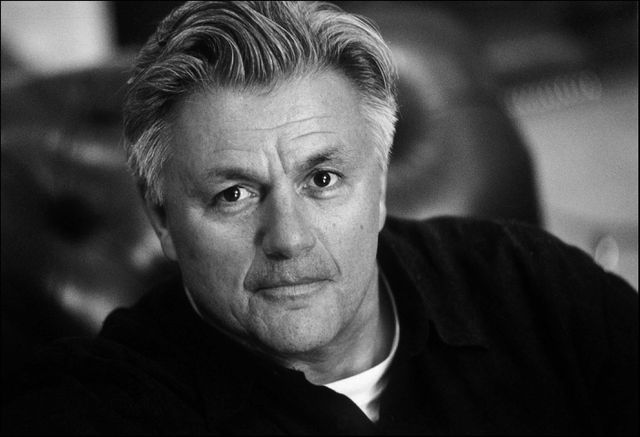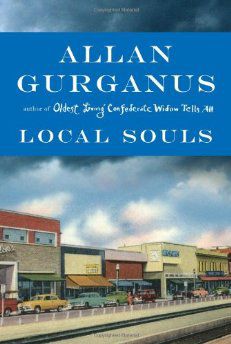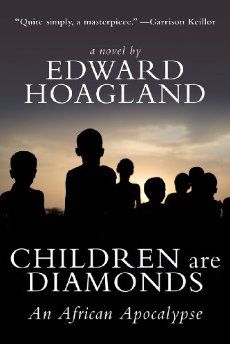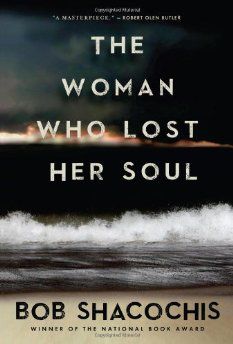
John Irving
John Winslow Irving, is an American novelist and Academy Award-winning screenwriter. Irving achieved critical and popular acclaim after the international success of The World According to Garp in 1978.

John Winslow Irving, is an American novelist and Academy Award-winning screenwriter. Irving achieved critical and popular acclaim after the international success of The World According to Garp in 1978.

Local Souls, 3 novellas by Allan Gurganus, is flawless storytelling. He writes with the confidence of a Greek chorus; he brings sexual taboos and a parent's worst fears to light. His sense of foreshadow is so strong that his endings have the power of inevitability.
In his first work of fiction in a decade, Allan Gurganus returns to the mythic site of his immortal novel Oldest Living Confederate Widow Tells All. Time has passed; the Internet has arrived; but the daily human dramas in Falls, North Carolina prove that old habits die hard. A banker's daughter seeks the child she was forced to relinquish at birth . . . The disappearance of a star high school student sends ripples through the town, creating a cult led by her stricken mother . . . The friendship between two married men is tested by a devastating flood. Local Souls is a universal tale of gigantic hopes battling small-town conventions - a dark comedy of adultery, obsession and incest, told with affection and piercing insight.

Edward Hoagland's Children Are Diamonds is a fearless novel; set in Africa, it is both an exposure of killing and sexual brutality and a story of humanitarian care. His aid workers are damaged souls, but they haven't quit. He is writing about a moral outback, of unbearable inhumanity, but there are real heroes, too.
This is not the Africa of Isak Dinesen, nor the Africa of Joy Adamson. This is the Africa of civil wars and tribal massacres, where the Lords Resistance Army recruits child-soldiers after forcing them to kill their parents and eat their hearts. The aid workers who voluntarily subject themselves to life here are a breed of their own. Meet Hickey, an American school teacher in his late thirties, an American school teacher who burns his bridges with the school board and goes to Africa as an aid worker. Working for an agency in Nairobi, one of his jobs is to drive food and medical supplies to Southern Sudan to an aid station run by Ruth, a middle-aged woman, who acts as nurse, doctor, hospice worker, feeder of starving children, and witness. Ruth is gruff but efficient, and Hickey, who is usually drawn to youth and beauty, is struck by her devotion. Returning to Nairobi, he cant forget what he has seen. When the violence and chaos in the region increase to a fever pitch and aid workers are being slaughtered or evacuated, Hickey is asked to save Ruth overland by Jeep. What happens to them and the children that have joined their journey is the searing climax of this novel. Hoagland paints an unflinching portrait of a living hell at its worst, and yet amid that suffering there is hope in the form of humility, sacrifice, and life-affirming friendship.

Bob Shacochis is also writing about moral outbacks. His huge novel, The Woman Who Lost her Soul is never slack; the architecture is superb. An ambitious time span (50 years), a monstrous father, a lost daughter, Haiti in the '90s, Croatia in the '40s, Turkey in the '80s. What he demonstrates is that America has lost its soul, too. The Shocochis novel is a great undertaking.
Renowned through four award-winning books for his gritty and revelatory visions of the Caribbean, Bob Shacochis returns to occupied Haiti in The Woman Who Lost Her Soul before sweeping across time and continents to unravel tangled knots of romance, espionage, and vengeance. In riveting prose, Shacochis builds a complex and disturbing story about the coming of age of America in a pre-9/11 world. Set over fifty years and in four countries backdropped by different wars, The Woman Who Lost Her Soul is National Book Award winner Bob Shacochis magnum opus that brings to life, through the mystique and allure of history, an intricate portrait of catastrophic events that led up to the war on terror and the America we are today.